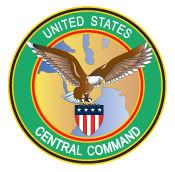FayObserver.com - Current Article Page: "This was the year that "surge" became part of our national vocabulary. The year that cost more Fort Bragg lives than any since Vietnam. The year that all of the 82nd Airborne Division was gone to war. Thus -- in this year when farms turned to dust, nursing students cried foul and lawmen went to prison -- the unresolved battles in Afghanistan and Iraq remain the biggest story.
In 2007, the number of Fort Bragg deaths in Iraq and Afghanistan topped 100. Tours of duty were extended from a year to 15 months. And the entire 82nd Airborne Division was deployed at the same time.
But the main reason the war dominated the news — and was picked the top story of the year by Fayetteville Observer staffers — was the “surge.”
In a January speech, President Bush ordered a troop increase in hopes of curbing violence and creating a protective bubble around Baghdad for the fledgling Iraqi government. The plan more than doubled U.S. combat power in the capital.
Fort Bragg soldiers were at the heart of the plan.
An advance unit from the 82nd’s 2nd Brigade Combat Team was in Baghdad just after Bush’s speech. The rest of the unit moved from Kuwait into the Iraqi capital days later.
It took several months, but by the end of the surge, there were more than 160,000 American troops in Iraq, including three of the four 82nd Airborne Division’s infantry brigades. At the end of the year, violence had dropped. But the end of the war apparently remains distant."
Our take
Kevin Maurer covered Fort Bragg soldiers in Iraq and Afghanistan last year: “It shouldn’t shock anyone that the war was the number one story in Fayetteville. While the surge captured all the headlines, Afghanistan is the most important fight. Let’s not forget that the hijackers on Sept. 11, 2001, trained there. Yet the mission in Afghanistan gets little funding and attention from policymakers.”
Your take
Laura Baie, the wife of an 82nd Airborne Division paratrooper, wasn’t surprised that the war was the top story: “The news likes to report when things go wrong, and that happens quite a lot with any war.”
Jeff Slocum is a retired Air Force chief master sergeant: “I am not surprised because there is so much at stake. But what is at stake has nothing to do with how they are selling the war. I think what is at stake is the health of our democracy.”
Sunday, December 30, 2007
2007-- The year in review
Subscribe to:
Post Comments (Atom)




















 >
>











No comments:
Post a Comment